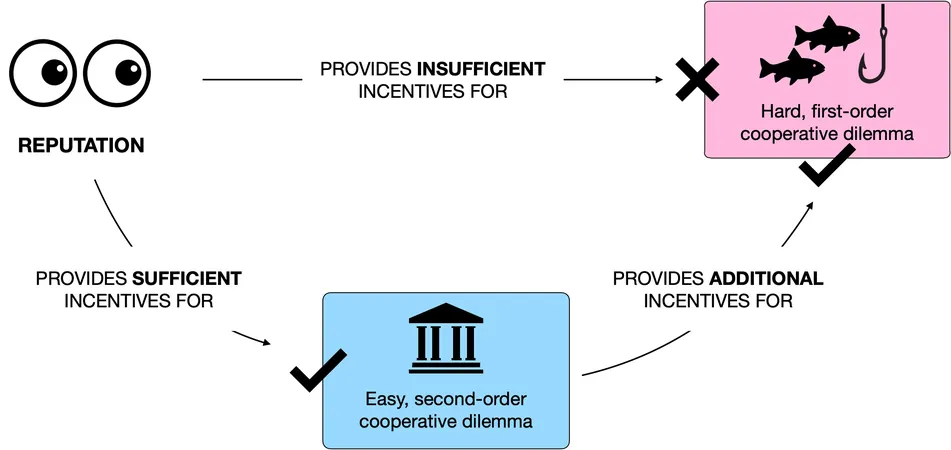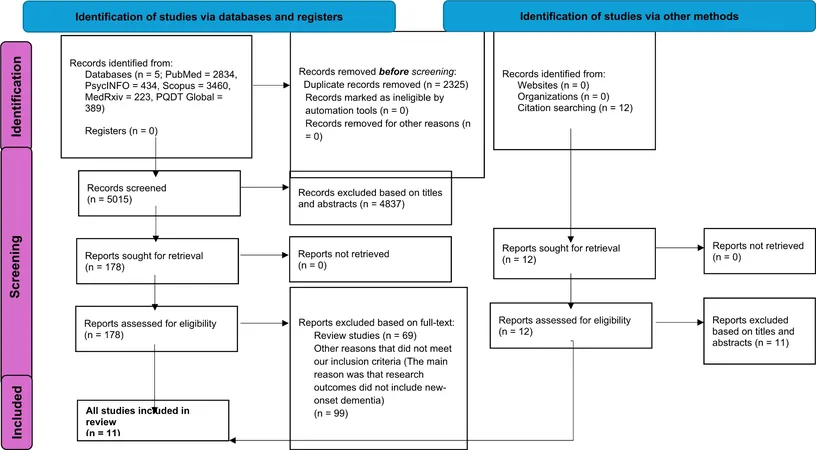
Unlocking Cooperation: How Institutions Turn Weak Reputation Signals into Powerful Collaboration Forces
2024-12-16
Author: William
Institutions are the very backbone of our societies, shaping the way we interact and cooperate. They operate on a principle of rewarding altruistic behavior while penalizing selfish actions. However, these systems are caught in a captivating paradox: for institutions to work effectively, they must rely on the cooperation of their members. A groundbreaking study published in the *Proceedings of the National Academy of Sciences* reveals how institutions can not only arise but also flourish within this complex framework.
Understanding Reputation Dynamics
A collaborative team of researchers from the Max Planck Institute for Evolutionary Biology, the Institute for Advanced Studies in Toulouse (IAST), and the Institut Jean Nicod at ENS-PSL has developed a mathematical model that sheds light on how institutions take form through reputation dynamics. This model carefully analyzes two connected dilemmas surrounding cooperation.
Two Scenarios of Cooperation Dilemmas
In the first scenario, high costs or limited oversight render reputation ineffective on its own to encourage cooperative behavior. In the second scenario, individuals can come together to modify the factors that complicate the first dilemma. The fascinating insight from this research is that this interlinked structure creates a leverage effect. While reputation might not directly resolve the initial problem of cooperation, it can stimulate collective actions that improve conditions in the second scenario. Ultimately, these collective actions pave the way for enhanced cooperation in the more challenging first scenario.
Historical Context: Tokugawa-Era Japan
To illustrate these concepts, the study references an intriguing historical context from Tokugawa-era Japan, where communities grappled with sustainably managing shared forest resources such as firewood and materials for construction. This situation serves as an example of the “tragedy of the commons,” where individuals are driven to deplete resources selfishly, leading to potential disaster.
The Role of Detectives in Resource Management
In an environment where monitoring forest use proved incredibly challenging, community members innovatively instituted a role known as detectives. These detectives were tasked with overseeing forest usage and enforcing penalties for those who broke the rules. This institutional structure created the necessary incentives for villagers to adhere to resource management guidelines.
Oversight of Detectives
However, the role of detectives was not without its complications. They themselves required oversight to prevent corruption or mismanagement of power. Fortunately, this secondary challenge was easier to navigate; detectives could be monitored more effectively than the individual uses of the forest. A negative reputation could lead to job loss or social ostracism for the detectives, thereby clarifying the stakes in maintaining integrity.
Conclusion: Institutions as Social Technologies
By successfully addressing this simpler oversight issue, the communities in Tokugawa-era Japan managed to tackle the more complex problem of resource management effectively. The study concludes with a powerful analogy: institutions act as social technologies that harness fundamental human motivations, like the innate desire for a good reputation. Just as a pulley magnifies a small effort to lift heavy weights, institutions can transform minimal reputation incentives into robust drivers of cooperation. Over time, these institutions have likely evolved, enhancing their ability to tackle increasingly intricate challenges related to cooperation and resource management.
As we ponder the role of institutions in today’s complex social fabric, this research emphasizes the profound impact of cooperative frameworks on societal sustainability. Could the revival of such ingenious methods of collective problem-solving hold the key to overcoming our contemporary challenges? The charge is open for discussion!









 Brasil (PT)
Brasil (PT)
 Canada (EN)
Canada (EN)
 Chile (ES)
Chile (ES)
 España (ES)
España (ES)
 France (FR)
France (FR)
 Hong Kong (EN)
Hong Kong (EN)
 Italia (IT)
Italia (IT)
 日本 (JA)
日本 (JA)
 Magyarország (HU)
Magyarország (HU)
 Norge (NO)
Norge (NO)
 Polska (PL)
Polska (PL)
 Schweiz (DE)
Schweiz (DE)
 Singapore (EN)
Singapore (EN)
 Sverige (SV)
Sverige (SV)
 Suomi (FI)
Suomi (FI)
 Türkiye (TR)
Türkiye (TR)